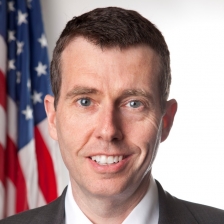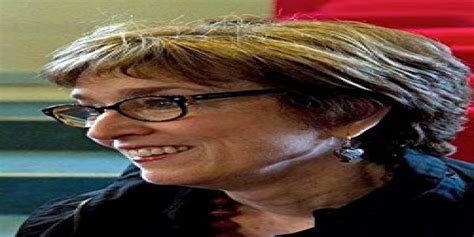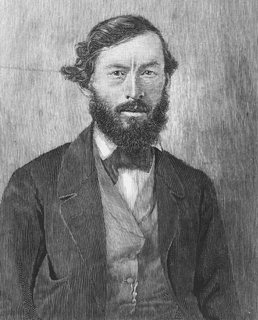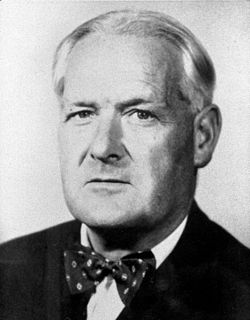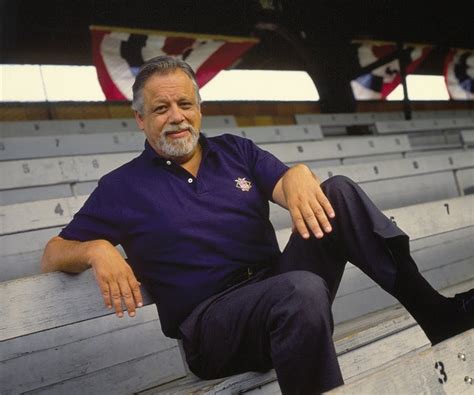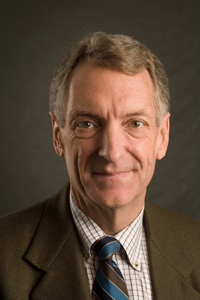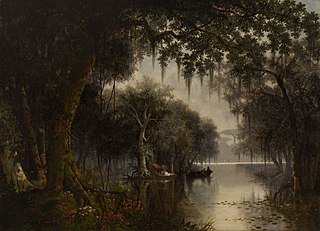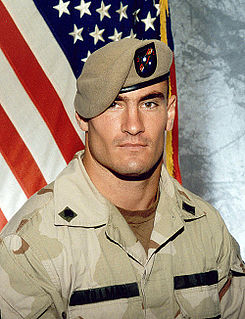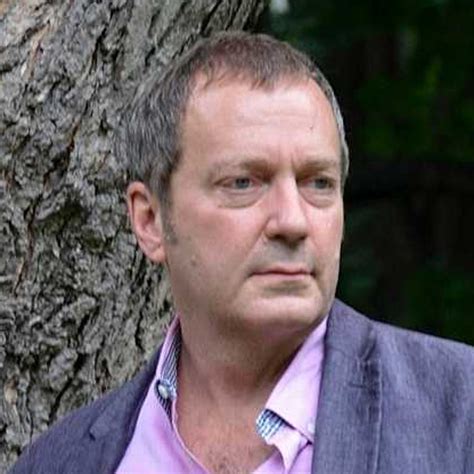Top 664 Absent Mindedness Quotes & Sayings - Page 11
Explore popular Absent Mindedness quotes.
Last updated on April 19, 2025.
When people use the word hell, what do they mean? They mean a place, an event, a situation absent of how God desires things to be. Famine, debt, oppression, loneliness, despair, death, slaughter--they are all hell on earth. Jesus' desire for his followers is that they live in such a way that they bring heaven to earth. What's disturbing is when people talk more about hell after this life than they do about Hell here and now. As a Christian, I want to do what I can to resist hell coming to earth.
The eager or dutiful persons who subject themselves to these tidal waves of the classics and the moderns find everything wonderful in an absent-minded way. The wonder washes over them rather than into them, and one of its effects is to make anything shocking or odd suddenly interesting enough to gain a month's celebrity. And so another by-product of our come-one, come-all policy is the tendency to reward cleverness, not art, and to put one more hurdle in the path of the truly original artist.
I think that Obama's failure to reestablish the rule of law in money matters is the most damaging thing that he's done - and perhaps the most damaging thing that has happened in American politics in my lifetime. Because once the rule of law is absent in money matters, then anything really goes in politics.
The pain of loneliness is one way in which he wants to get our attention. We may be earnestly desiring to be obedient and holy. But we may be missing the fact that it is here, where we happen to be at this moment and not in another place or another time, that we may learn to love Him - here where it seems He is not at work, where He seems obscure or frightening, where He is not doing what we expected Him to do, where He is most absent. Here and nowhere else is the appointed place. If faith does not got to work here, it will not work at all.
I made cranberry sauce, and when it was done put it into a dark blue bowl for the beautiful contrast. I was thinking, doing this, about the old ways of gratitude: Indians thanking the deer they'd slain, grace before supper, kneeling before bed. I was thinking that gratitude is too much absent in our lives now, and we need it back, even if it only takes the form of acknowledging the blue of a bowl against the red of cranberries.
The modern world lies under a pervasive sense of anguish, of being abandoned, or at least experiencing God as absent. Yet events that seem to turn our lives upside down and inside out are part of God's redemptive plan, not only for us, but for the world in which we live. God may be preparing a great awakening for the world, if God can find enough people to cooperate in this mysterious plan.
Mirabelle replaces the absent friends with books and television mysteries of the PBS kind. The books are mostly nineteenth-century novels in which women are poisoned or are doing the poisoning. She does not read these books as a romantic lonely hearts turning pages in the isolation of her room, not at all. She is instead an educated spirit with a sense of irony. She loves the gloom of these period novels, especially as kitsch, but beneath it all she finds that a part of her indentifies with all that darkness.
Now, the president would like to do tax reform, which would obviously lower rates for most people in America and make the tax code fair and get rid of loopholes and special treatment. But absent tax reform, the president believes the right way to get our fiscal house in order is ask the wealthy to pay their fair share.
When the rose is gone and the garden faded you will no longer hear the nightingale's song. The Beloved is all; the lover just a veil. The Beloved is living; the lover a dead thing. If love withholds its strengthening care, the lover is left like a bird without care, the lover is left like a bird without wings. How will I be awake and aware if the light of the Beloved is absent? Love wills that this Word be brought forth.
I have to ask myself how I can possibly expect to know Jesus as he would want to be known if my life remains unscathed by trouble and grief. How can I hope to grasp anything of God's heart for this broken planet if I never weep because its brokenness touches me and breaks my heart? How can I reflect his image if I never share in his sufferings? And how will any of us ever learn to treasure his hesed and grace if we never experience phases where these blessings seem absent?
How long do you remember that it is the Lord who is making you work? But then, by repeatedly analysing like that, you will come to a state when the ego will vanish and in its place the Lord will come in. Then you will be able to say with justice "Thou, Lord, art guarding all my actions from within." But, my friend, if the ego occupies all the space within your heart, where forsooth will there be room enough for the Lord to come in? The Lord is verily absent!
Kripke says that physicalists like me can't explain the 'apparent contingency' of mind-brain identities. He maintains that, if I really believed that pains are C-fibres, then I ought no longer to have any room for the thought that 'they' might come apart. His argument is that, since pains aren't identified via some contingent description, but in terms of how they feel, I have no good way of constructing a possible world, so to speak, where C-fibres are present yet pains absent.
Eros is an issue of boundaries. He exists because certain boundaries do. In the interval between reach and grasp, between glance and counterglance, between ‘I love you’ and ‘I love you too,’ the absent presence of desire comes alive. But the boundaries of time and glance and I love you are only aftershocks of the main, inevitable boundary that creates Eros: the boundary of flesh and self between you and me. And it is only, suddenly, at the moment when I would dissolve that boundary, I realize I never can.
It's Simon. He's missing." "Ah," said Magnus, delicately, "missing what, exactly?" "Missing," Jace repeated, "as in gone, absent, notable for his lack of presence, disappeared." "Maybe he's gone and hidden under something," Magnus suggested. "It can't be easy getting used to being a rat, especially for someone so dim-witted in the first place." "Simon's not dim-witted," Clary protested angrily. "It's true," Jace agreed. "He just looks dim-witted. Really his intelligence is quite average.
Spiritual power is generated within temple walls, and sent out to bless the world ... Every home penetrated by the temple spirit enlightens, cheers, and comforts every member of the household. The peace we covet is found in such homes. Indeed, when temples are on earth, the whole world shares measurably in the issuing light; when absent, the hearts of men become heavy, as if they said, with the people of Enoch's day, 'Zion is fled'" (See Moses 7:69).
They are enthusiasts, devotees. Addicts. Something about the circus stirs their souls, and they ache for it when it is absent. They seek each other out, these people of such specific like mind. They tell of how they found the circus, how those first few steps were like magic. Like stepping into a fairy tale under a curtain of stars… When they depart, they shake hands and embrace like old friends, even if they have only just met, and as they go their separate ways they feel less alone than they had before.
Bountiful is your life, full and complete. Or so you think, until someone comes along and makes you realize what you have been missing all this time. Like a mirror that reflects what is absent rather than present, he shows you the void in your soul—the void you have resisted seeing. That person can be a lover, a friend, or a spiritual master. Sometimes it can be a child to look after. What matters is to find the soul that will complete yours. All the prophets have given the same advice: Find the one who will be your mirror!".
Shifting Philip Morris to the new a non-risk products doesn't mean that I will give market share to my competitors free of charge. In the markets where we are not present with IQOS yet or the other reduced-risk products, you still need to defend your share of the market. They still represent the bulk of our income, and so far they have financed the billions of dollars we have put behind these new products. But once we go national in a market, and absent capacity constraints, then you shift your resources and your focus to these new products.
I didn't know what I wanted to Be...A sense that I had permanently botched things already, embarked on the trip without the map. and it scared me too, that I might end up as a mother of 3 working in a psychiatrist's office, or renting surfboards...I guess I saw their lives as failed somehow, absent of the Big Win...What is fate was an inherited trait? What if luck came through the genetic line, and the ability to "succeed" at your chosen "direction" was handed down, just like the family china? Maybe I was destined to be a weed too.
I can't imagine where I'd be without the opportunities provided to me in sports. Sports taught me that gender isn't an issue; in fact, when people talk about me being the first female governor, I'm a little absent from that discussion, because I've never thought of gender as an issue. In sports, you learn self-discipline, healthy competition, to be gracious in victory and defeat, and the importance of being part of a team and understanding what part you play on that team. You all work together to reach a goal, and I think all of those factors come into play in my role as governor.
I was never molested by any person but those who represented the State. I had no lock nor bolt but for the desk which held my papers, not even a nail to put over my latch or windows. I never fastened my door night or day, though I was to be absent several days; not even when the next fall I spent a fortnight in the woods of Maine. And yet my house was more respected than if it had been surrounded by a file of soldiers.
Sir: It gives me pleasure to report to you the fine bearing and soldierly conduct of Captain Wilson and his men whilst absent on special duty. Though their duties were more arduous than those of others, they were always prompt and ready for performance of all they were called upon to do. As a body they would be a credit to any organization, and I will be glad to be associated with them on duty at any time.
The Brazilian national identity is not one of João Gilberto Noll primary concerns. This does not mean social critique is absent: race, gender, and class relations are considered in Quiet Creature. And these are universal relational matters, not necessarily particular to any country. Some critics have commented that understanding the specific Brazilian political context of the novel is helpful for reading Quiet Creature. This may be true, but it's not prerequisite for understanding it.
You have nothing to lose. All that you can lose is your tension and your worry, your little-mindedness, fear, and anxiety. And fear and anxiety, tension and worry in the small, little mind will keep the mind from being free, will keep the mind from experiencing its infinite potential, will keep the mind from becoming more powerful on this planet.
The modern habit of saying "This is my opinion, but I may be wrong" is entirely irrational. If I say that it may be wrong, I say that is not my opinion. The modern habit of saying "Every man has a different philosophy; this is my philosophy and it suits me" – the habit of saying this is mere weak-mindedness. A cosmic philosophy is not constructed to fit a man; a cosmic philosophy is constructed to fit a cosmos. A man can no more possess a private religion than he can possess a private sun and moon.
The statistical method is required in the interpretation of figures which are at the mercy of numerous influences, and its object is to determine whether individual influences can be isolated and their effects measured. The essence of the method lies in the determination that we are really comparing like with like, and that we have not overlooked a relevant factor which is present in Group A and absent from Group B. The variability of human beings in their illnesses and in their reactions to them is a fundamental reason for the planned clinical trial and not against it.
How do we remember to remember? That's a question I've asked myself often since my time on Duma Key, often in the small hours of the morning, looking up into the absence of light, remembering absent friends. Sometimes in those little hours I think about the horizon. You have to establish the horizon. You have to mark the white. A simple enough act, you might say, but any act that re-makes the world is heroic. Or so I've come to believe.
The gods have fled, I know. My sense is the gods have always been essentially absent. I do not believe human beings have played games or sports from the beginning merely to summon or to please or to appease the gods. If anthropologists and historians believe that, it is because they believe whatever they have been able to recover about what humankind told the gods humankind was doing. I believe we have played games, and watched games, to imitate the gods, to become godlike in our worship of eachother and, through those moments of transmutation, to know for an instant what the gods know.
How evanescent those loves and friendships seem at this distance in time…We move on, make new attachments. We grow old. But sometimes, we hanker for old friendships, the old loves. Sometimes I wish I was young again. Or that I could travel back in time and pick up the threads. Absent so long, I may have stopped loving you, friends; but I will never stop loving the Day I loved you.
It was during those long and lonely years that my hunger for the freedom of my own people became a hunger for the freedom of all people, white and black. I knew as well as I knew anything that the oppressor must be liberated just as surely as the oppressed. A man who takes away another man's freedom is a prisoner of hatred, he is locked behind the bars of prejudice and narrow-mindedness. I am not truly free if I am taking away someone else's freedom, just as surely as I am not free when my freedom is taken from me. The oppressed and the oppressor alike are robbed of their humanity.
A FRIEND IS A PERSON . . . With whom you can be sincere. . . . To whom you never need to defend yourself. . . . On whom you can depend whether present or absent. . . . With whom you never need pretend. . . . To whom you can reveal yourself without fear of betrayal. . . . Who does not feel she owns you because you are her friend. . . . Who will not selfishly use you because she has your confidence. I WOULD HAVE SUCH A FRIEND. . . AND I WOULD BE SUCH A FRIEND. I DO HAVE SUCH A FRIEND!
I am the owner of my choices. I am the source for the perspectives I choose to hold regardless of how aware I am of why or how I come to possess that particular perspective. It takes courage to look into the mirror of our souls, absent excuses. I will look into that mirror little bits at a time. SEE and ACT. SEE what I can bear to see and ACT upon what I am able. This is the heart of a gentle invitation to personal responsibility.
People will change when they see that the change will help them reach their goals. If the CHRO sees that the HR transformation that others desire will help the CHRO reach his or her goals, then there will be more support. Absent this reasoning, the CHRO may go through the motions, but the transformation will not be sincere or lasting.
Then it’s just Venia, whose skin is so pale her tattoos appear to be leaping off it. Almost rigid with determination, she does my hair and nails and makeup, fingers flying swiftly to compensate for her absent teammates. The whole time, she avoids my gaze. It’s only when Cinna shows up to approve me and dismiss her that she takes my hands, looks me straight in the eye, and says, “We would all like you to know what a…privilege it has been to make you look your best.” Then she hastens from the room.
Majority decisions tend to be made without engaging the systematic thought and critical thinking skills of the individuals in the group. Given the force of the group's normative power to shape the opinions of the followers who conform without thinking things through, they are often taken at face value. The persistent minority forces the others to process the relevant information more mindfully. Research shows that the deciscions of a group as a whole are more thoughtful and creative when there is minority dissent than when it is absent.
One thing about having mostly absent parents that I think was perhaps "good" for the development of my intellect/writing is that I was given almost total freedom to read/write/look at whatever I wanted. I wonder a lot about how my past experiences, particularly my negative childhood (home life and being severely bullied/ostracized throughout school) as formed my/my thoughts/my writing, though I should also note those things were far from the only thing that had an impact on me/my writing.
One answer to why public interest in men's tennis has been on the wane in recent years is an essential and unpretty thugishness about the power-baseline style that's become dominant on the tour. Watch Agassi closely sometime...he's amazingly absent of finesse, with movements that look more like a heavy-metal musician's than an athlete's...what a top PBer really resembles is film of the old Soviet Union putting down a rebellion. It's awesome, but brutally so, with a grinding, faceless quality about its power that renders that power curiously dull and empty.
When a Pueblo Indian does not feel in the right mood, he stays away from the men's council. When an ancient Roman stumbled on the threshold as he left the house, he gave up his plans for the day. This seems to us senseless, but under primitive conditions of life such an omen inclines one at least to be cautious. When I am not in full control of myself, my bodily movements may be under a certain constraint; my attention is easily distracted; I am somewhat absent-minded. As a result I knock against something, stumble, let something fall, or forget something.
All of the elements of the comic way tend to spread to others, insinuating joy where it was previously absent. Conversation has a way of leaping among persons, as it does at parties and celebratory gatherings. Storytelling always begets storytelling. It is difficult to watch others at play without wanting to join them. This is not only a human phenomenon, for researchers have consistently noted that animals at play are often imitated by other animals. So wherever it is possible to initiate a playful activity, it will have a good chance of replicating itself through other parts of the system.
Kant does not think that along with choice of an action we also choose in each case the motive from which we do it. He thinks all is well if I act beneficently, realizing that it is my duty but also having sympathetic feelings for the person I help. But I ought to strive to be the sort of person who would still help even if these feelings were absent. And it is such a case that he presents when the sympathetic friend of humanity finds his sympathetic feelings overclouded by his own sorrows, and still acts beneficently from duty.
The self-esteem of western women is founded on physical being (body mass index, youth, beauty). This creates a tricky emphasis on image, but the internalized locus of self-worth saves lives. Western men are very different. In externalizing the source of their self-esteem, they surrender all emotional independence. (Conquest requires two parties, after all.) A man cannot feel like a man without a partner, corporation, team. Manhood is a game played on the terrain of opposites. It thus follows that male sense of self disintegrates when the Other is absent.
Stories hold power because they convey the illusion that life has purpose and direction. Where God is absent from the lives of all but the most blessed, the writer, of all people, replaces that ordering principle. Stories make sense when so much around us is senseless, and perhaps what makes them most comforting is that, while life goes on and pain goes on, stories do us the favor of ending.
Word is murder of a thing, not only in the elementary sense of implying its absence - by naming a thing, we treat it as absent, as dead, although it is still present - but above all in the sense of its radical dissection: the word 'quarters' the thing, it tears it out of the embedment in its concrete context, it treats its component parts as entities with an autonomous existence: we speak about color, form, shape, etc., as if they possessed self-sufficient being.
In any fairly large and talkative community such as a university there is always the danger that those who think alike should gravitate together where they will henceforth encounter opposition only in the emasculated form of rumour that the outsiders say thus and thus. The absent are easily refuted, complacent dogmatism thrives, and differences of opinion are embittered by the group hostility. Each group hears not the best, but the worst, that the other group can say.
I love seeing somebody act real earnest and serious, like Jackie Gleason. He makes me laugh because he reflects back to me my own serious-mindedness and how ridiculous it all is. It's always easier to see somebody else in that position than yourself, and you laugh. It's like the classic slipping on the banana peel, or someone getting hit by a pie in the face. Why do those things make us laugh? Is it from relief, like: Thank God it wasn't me? Or is it something else: I'm being very serious now. I'm pontificating earnestly and solemnly about-POW! PIE IN THE FACE! The bust-up of certainty.
Take almost any path you please, and ten to one it carries you down in a dale, and leaves you there by a pool in the stream. There is magic in it. Let the most absent-minded of men be plunged in his deepest reveries--stand that man on his legs, set his feet a-going, and he will infallibly lead you to water, if water there be in all that region. Should you ever be athirst in the great American desert, try this experiment, if your caravan happen to be supplied with a metaphysical professor. Yes, as every one knows, meditation and water are wedded for ever.
The best generals I have known were... stupid or absent-minded men. Not only does a good army commander not need any special qualities, on the contrary he needs the absence of the highest and best human attributes - love, poetry, tenderness, and philosophic inquiring doubt. He should be limited, firmly convinced that what he is doing is very important (otherwise he will not have sufficient patience), and only then will he be a brave leader. God forbid that he should be humane, should love, or pity, or think of what is just and unjust.
So use all that is called fortune. Most men gamble with her, and gain all and lose all, as her wheel rolls... A political victory, a rise of rents, the recovery of your sick or the return of your absent friend, or some other favorable event raises your spirits, and you think good days are preparing for you. Do not believe it. Nothing can bring you peace but yourself. Nothing can bring you peace but the triumph of principles.
She'd cried over a broken heart before. She knew what that felt like, and it didn't feel like this. Her heart felt not so much broken as just ... empty. It felt like she was an outline empty in the middle. The outline cried senselessly for the absent middle. The past cried for the present that was nothing.
McEwan's Atonement…truly dazzles, proving to be as much about the art and morality of writing as it is about the past…. The middle section of Atonement, the two vividly realized set pieces of Robbie's trek to the Channel and Briony's experiences with the wounded evacuees of Dunkirk, would alone have made an outstanding novel…. There is wonderful writing throughout as McEwan weaves his many themes — the accidents of contingency, the sins of absent fathers, class oppression — into his narrative, and in a magical love scene.
When you feel perpetually unmotivated, you start questioning your existence in an unhealthy way; everything becomes a pseudo intellectual question you have no interest in responding whatsoever. This whole process becomes your very skin and it does not merely affect you; it actually defines you. So, you see yourself as a shadowy figure unworthy of developing interest, unworthy of wondering about the world - profoundly unworthy in every sense and deeply absent in your very presence.
The world worlds, and is more fully in being than the tangible and perceptible realm in which we believe ourselves to be at home...By the opening up of a world, all things gain their lingering and hastening, their remoteness and nearness, their scope and limits. In a world's worlding is gathered that spaciousness out of which the protective grace of the gods is granted and withheld. Even this doom of the god remaining absent is a way in which the world worlds...All coming to presence...keeps itself concealed to the last.
A commander-in-chief cannot take as an excuse for his mistakes in warfare an order given by his sovereign or his minister when the person giving the order is absent from the field of operations and is imperfectly aware or wholly unaware of the latest state of affairs. It follows that any commander-in-chief who undertakes to carry out a plan which he considers defective is at fault; he must put forward his reasons, insist on the plan being changed, and finally tender his resignation rather than be the instrument of his army's downfall.
My son's dad is committed, and involved, and amazing. We're actually really good friends. But I think it's dangerous to speak negatively to the child about your ex or the absent parent, because, believe it or not, they learn very quickly who the other parent is. And it's important that they develop their own attitudes and opinions about that other parent based on their experiences, not based on what someone has said about them.
What of the Wright boys in Dayton? Just around the corner they had a shop and did a bicycle business-and they wanted to fly for the sake of flying. They were Man the Seeker, Man on a Quest. Money was their last thought, their final absent-minded idea. They threw out a lot of old mistaken measurements and figured new ones that stood up when they took off and held the air and steered a course. They proved that "the faster you go the less power you need."
No sovereign, no court, no personal loyalty, no aristocracy, no church, no clergy, no army, no diplomatic service, no country gentlemen, no palaces, no castles, nor manors, nor old country-houses, nor parsonages, nor thatched cottages nor ivied ruins no cathedrals, nor abbeys, nor little Norman churches no great Universities nor public schools -- no Oxford, nor Eton, nor Harrow no literature, no novels, no museums, no pictures, no political society, no sporting class -- no Epsom nor Ascot Some such list as that might be drawn up of the absent things in American life.
Not keep a journal! How are your absent cousins to understand the tenor of your life in Bath without one? How are the civilities and compliments of every day to be related as they ought to be, unless noted down every evening in a journal? How are your various dresses to be remembered, and the particular state of your complexion, and curl of your hair to be described in all their diversities, without having constant recourse to a journal?
Great lecturers seldom hesitate to use dramatic tricks to enshrine their precepts in the minds of their audiences, and at Yale perhaps Chauncey B. Tinker was the most noted. To read one of his lectures was like reading a monologue of the great actress Ruth Draper--you missed the main point. You missed the drop in his voice as he approached the death in Rome of the tubercular Keats; you missed the shaking tone in which he described the poet's agony for the absent Fanny with him his love had never been consummated; you missed the grim silence of the end.







